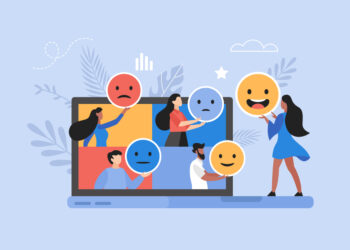
While on vacation last week, my son introduced me to an interesting development at our favorite game company, Valve, creators of Portal, Portal 2, Team Fortress 2, and the Steam platform. What Valve has done is launch a movie-making platform called Source Filmmaker, which integrates movie making directly into the Valve game source code, thereby allowing users to capture game play as a movie, then edit the game play they’ve captured into other movies other users have made, introduce new elements into the game play they’ve captured, reframe or reorient avatars and camera angles in the captured game play, create entirely new sequences and splice them into the game play, and create studio-quality lip-synced dialog thanks to voice recognition technology.
You can see what I mean in this video of the new offering (caution — because the examples come from Team Fortress 2, cartoon violence is prevalent):
What intrigues me so much about this is how players can collaborate on making a movie scene, almost how they might in real life — you go behind that barrier, and when I get to the truck, you turn to the right, then get up and run to the overturned car. Splice in a few close-ups with dialog, jazz up the camera angles, and you’ve got a nice little scene.
A recent article in the Wall Street Journal entitled, “Your E-book Is Reading You,” connected with the Source Filmmaker idea in my head, and it took me a few minutes to understand why. In the article, we’re told how e-book providers are gathering data on reading habits, underlined text, and other aspects of e-reading in order to tailor their offerings. As described in the article, new interactive possibilities are emerging:
Coliloquy developed its software through Amazon’s Kindle data developer program, which allows outside companies to create interactive content for Kindle. Their proprietary data platform draws on complex algorithms, similar to gaming software, that lets readers choose from different narrative pathways.
The company hired six editors and five technology and product developers and began recruiting authors from a range of genres, including romance, nonfiction, young adult fantasy and erotica. Since launching this past January, the company has released eight titles, and is expanding into crime fiction, legal thrillers and experimental fiction. Mr. Lue and Ms. Rutherford declined to provide sales figures for Coliloquy’s titles, citing a nondisclosure agreement with Amazon. But they say more than 90% of readers who buy Colloquy’s books, which range from $2.99 to $7.99, finish reading them, and 67% reread the books.
Data are derivative. Even the Source Forge movies are derivative. But within these derivative worlds, new creative ventures can be explored and inspired.
Discussion
3 Thoughts on "Working and Living Inside the Game — Source Filmmaker and E-books Make Us Part of the Action"
I can understand how this works for games and for fiction, but for nonfiction? How might it apply to scholarly books, for instance?
Yes, I should have gone on a bit, but ran out of time. Such is life.
Game action is basically a set of algorithms let loose against a player. Let’s assume a historical textbook could be gamified, and players could then “play” the theater where Lincoln was shot, change roles (Lincoln, Booth, an anonymous audience member), make movies, change scenarios, etc. Or perhaps you could be a gene sequence or a stray guanine, and you could cause mutations in a larger environment, and learn how that might go.
Nonfiction isn’t as nonfluid as books make it seem. If you ripple through a century of Lincoln assassination books, you get different perspectives. Even our understanding of genetics has vastly changed, and there are hypotheses on the frontier that would make scenario play interesting, and perhaps quite informative. People are playing with these things in the sciences (Games for Health, other initiatives). Finding a way to mate games with story capture and perspective options could be just as useful there.
Is an interactive videogame style product as you describe still a “book”? Or is it something else new, derived from a book the way a movie is?
Also, have you ever heard of “machinima” (https://en.wikipedia.org/wiki/Machinima)? Red Vs. Blue (http://roosterteeth.com/home.php) was always a favorite…



